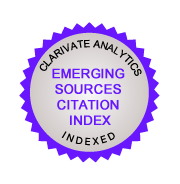La recepción de modelos franceses en la arquitectura ecléctica : Alejandro Rodríguez-Sesmero y el proyecto del Ayuntamiento de Pontevedra (1876)
DOI:
https://doi.org/10.5944/etfvii.13.2000.2352Resumen
El presente estudio tiene como objetivo demostrar la decisiva influencia de la arquitectura francesa del Segundo Imperio sobre el eclecticismo español, en concreto a través del proyecto de Alejandro Rodríguez-Sesmero González para la nueva sede municipal de la ciudad de Pontevedra (1876). Tras conseguir en 1871 su título como maestro de obras, en 1876 Alejandro Sesmero tomó posesión de la plaza de arquitecto municipal interino de Pontevedra, cargo que según la legislación no debiera ocupar por estar reservado para arquitectos titulados.
The present study sets out to demonstrate the decisive influence French Second Empire architectural models had on Spanish eclectic architecture, specifically through the project of Alejandro Rodríguez- Sesmero González for the new seat of Pontevedra's municipal government (1876). Having finished his training as «master masón» (architect's assistant) in 1871, Alejandro Sesmero first took on the position of acting council architect of Pontevedra, post which according to regulations he could not actually hold, as it was restricted to qualified architects.
Descargas
Descargas
Publicado
Cómo citar
Número
Sección
Licencia
Los autores que publican en esta revista están de acuerdo con los siguientes términos:
- Los autores conservan los derechos de autor (copyright) de las obras publicadas y garantizan a la revista el derecho de ser la primera publicación del trabajo al igual que permiten la reutilización del mismo bajo la licencia de uso indicada en el punto 2.
- Las obras se publican en la edición electrónica de la revista bajo bajo una licencia Creative Commons Reconocimiento-NoComercial 4.0 Internacional, que permite a otros compartir el trabajo con un reconocimiento de la autoría del trabajo y de la publicación inicial en esta revista. Se pueden copiar, usar, difundir, transmitir y exponer públicamente, siempre que: i) se cite la autoría y la fuente original de su publicación (revista, editorial y URL de la obra); ii) no se usen para fines comerciales.
- Se permite y se anima a los autores a difundir electrónicamente las versiones pre-print (versión antes de ser evaluada) y/o post-print (versión evaluada y aceptada para su publicación) de sus obras antes de su publicación, ya que favorece su circulación y difusión más temprana y con ello un posible aumento en su citación y alcance entre la comunidad académica (por ejemplo, en repositorios institucionales o en su propio sitio web). Color RoMEO: verde. (Véase The Effect of Open Access) (en inglés).










